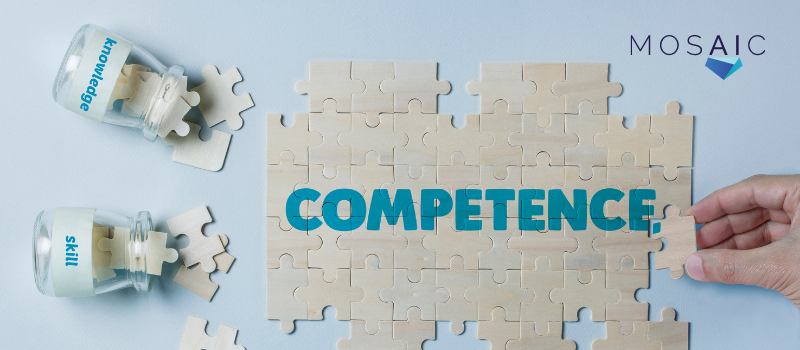Self-awareness, as a set of skills in the workplace, involves the ability to recognize and understand one’s own thoughts, emotions, strengths, weaknesses, and motivations. These skills are fundamental for personal growth, effective communication, and building positive relationships with colleagues.
Your self-awareness skills assessment
- Emotional Intelligence: Self-aware individuals possess emotional intelligence. They can identify and manage their own emotions effectively, which allows them to respond to situations and others with greater empathy and understanding.
- Self-Reflection: Self-awareness includes self-reflection. Individuals with these skills regularly examine their thoughts, behaviors, and experiences, seeking to understand their underlying motivations and patterns of behavior.
- Self-Assessment: Self-aware individuals can accurately assess their strengths and weaknesses. They understand their areas of expertise and areas where improvement is needed, allowing them to make informed decisions and set realistic goals.
- Communication Skills: Effective communication is a part of self-awareness. Self-aware individuals can express themselves clearly and assertively, making it easier for colleagues to understand their thoughts and intentions.
Self-awareness skills
- Conflict Resolution: Self-awareness plays a vital role in conflict resolution. Self-aware individuals can manage their emotions during conflicts, making it easier to engage in constructive dialogues and find mutually acceptable solutions.
- Empathy: Self-aware individuals often have high levels of empathy. They can put themselves in others’ shoes, understanding their feelings and perspectives, which fosters more compassionate interactions.
- Adaptability: Self-awareness skills often involve adaptability. Self-aware individuals can adjust their behaviors and responses based on the needs and preferences of others, enhancing their interpersonal relationships.
- Leadership: Self-aware individuals make effective leaders. They understand their leadership style, impact on others, and areas where they can improve, allowing them to lead with authenticity and humility.
More Self-awareness skills
- Feedback Receptivity: Self-aware individuals are open to feedback. They view feedback as a valuable tool for personal growth and development, actively seeking opportunities to learn from others.
- Personal Branding: Self-awareness includes a strong sense of personal branding. Individuals with these skills can articulate their values, beliefs, and professional identity, which can guide their career decisions and interactions with colleagues.
- Cultural Sensitivity: Self-awareness extends to cultural sensitivity. Self-aware individuals are aware of their own cultural biases and are open to learning about and respecting the cultural differences of others.
- Decision-Making: Self-awareness is vital for decision-making. Self-aware individuals can make decisions that align with their values and long-term goals, avoiding choices that may lead to regrets.
- Conflict Avoidance: Self-awareness involves addressing potential sources of conflict proactively and diplomatically, striving to prevent conflicts before they escalate.
Self-awareness skills assessment
- Ethical Conduct: Self-aware individuals prioritize ethical behavior. They are conscious of their moral values and strive to make decisions that align with their ethical principles.
- Self-Care: Maintaining self-care practices is a part of self-awareness. Self-aware individuals recognize the importance of physical and mental well-being and take steps to ensure they are at their best.
- Mindfulness: Self-aware individuals often practice mindfulness. They stay present in the moment, allowing them to manage stress, make clear decisions, and build stronger connections with others.
Self-awareness skills assessment summary
In summary, self-awareness as a set of skills includes emotional intelligence, self-reflection, self-assessment, communication skills, conflict resolution, empathy, adaptability, leadership, feedback receptivity, personal branding, cultural sensitivity, decision-making, conflict avoidance, ethical conduct, self-care, and mindfulness.
Developing these skills empowers individuals to understand themselves better, navigate interpersonal relationships effectively, and make decisions that align with their values and long-term goals in the workplace and in life.
– the Gifted education and educational assessment specialists.
